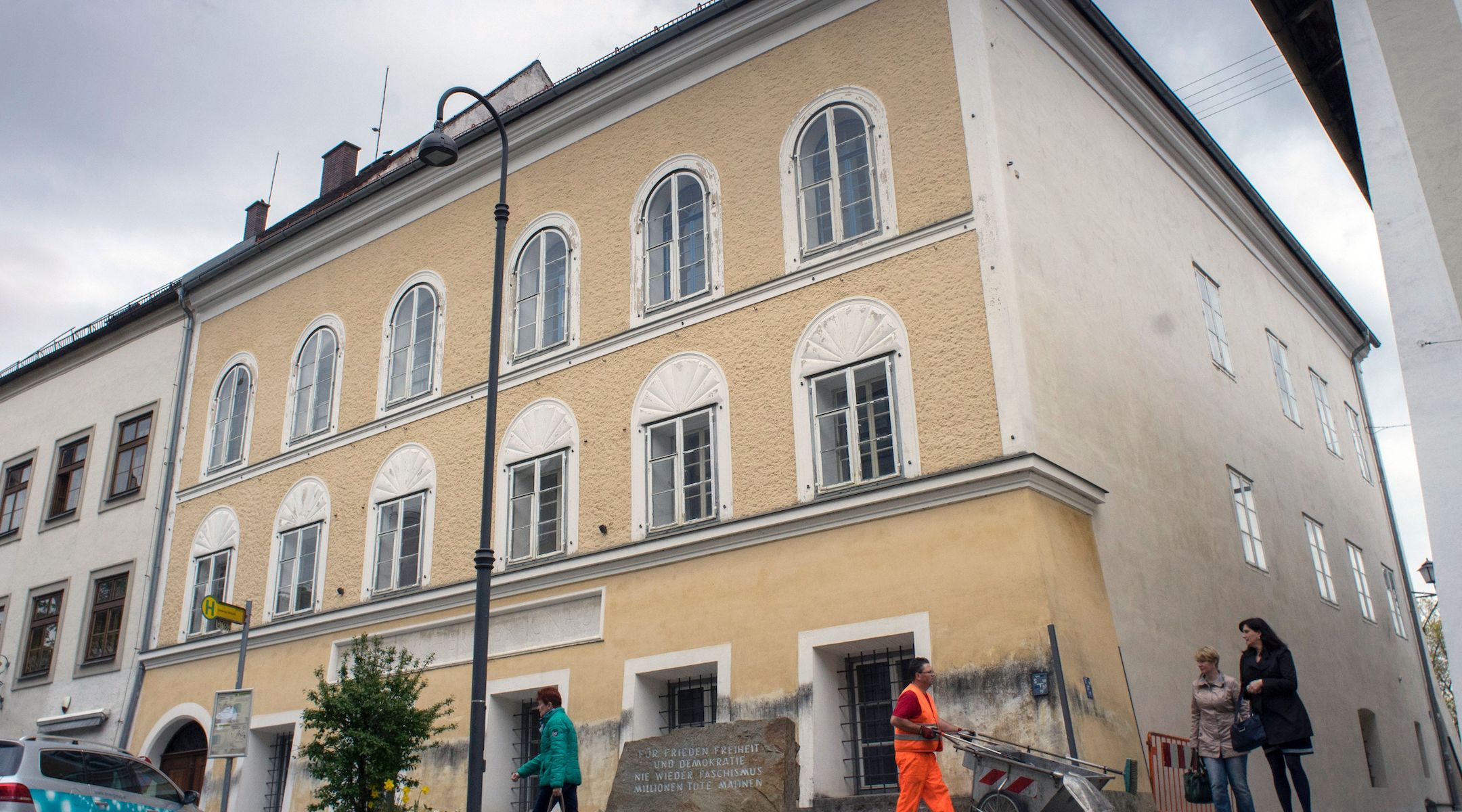BERLIN (JTA) — Plans to turn Hitler’s birth house into a police station have turned a small Austrian town upside down.
The local administration of Branau announced Monday its concrete plans to put the building to practical use, promising to house a police training program on issues related to human rights.
But less than two months before the redesign is to begin, local citizens and leaders are not in agreement on the plan.
A filmmaker has suggested that Hitler himself wanted to have local officials move into the rooms where he was born in 1889 and spent the first months of his life. In a documentary he is releasing on Tuesday, Günter Schwaiger reveals a 1939 news report about Hitler’s order. The film “Who’s afraid of Braunau?” is to premiere on a screen in front of the three-story house, which is located on a corner near Braunau’s town square. The town has about 16,000 residents.
Schwaiger told the AFP that the police station will “always be suspected” of being “in line with the dictator’s wishes.”
The building, which was constructed in the early to mid-19th century, has become a site of pilgrimage for Hitler supporters, despite the fact that the Austrian government expropriated the house in 2017, reportedly in part to prevent the site from becoming a magnet for neo-Nazis.
“To stop those gatherings, the town placed a monument in front of the house, consisting of a block of granite from the Mauthausen concentration camp quarry, inscribed with a message in memory of the victims of fascism,” California attorney Cary Lowe, who was born in Braunau to Holocaust survivors, told JTA in an email.
“If the government implements the police station proposal, which includes relocating the anti-fascist monument, I fear that will just suppress the history of the place and trivialize the tragic events that flowed from there,” he said.
In May, it was announced that the long-planned police station would include the human rights training program, in an apparent nod to opponents.
Such a program would “do justice to moral, political and legal responsibility,” Oliver Rathkolb of the Institute of Contemporary History at the University of Vienna said in a statement issued at the time by Austria’s Interior Ministry. “We have to face our past and give this historically burdened place a life-affirming perspective.”
But the plan has not received wide popular support. A small majority of those surveyed by the polling firm Market Institut said they preferred to see an entity move in that would focus solely on National Socialism, remembrance, anti-fascism or peace. Very few agreed with the planned use by law enforcement.
“There is only one acceptable solution, and that is to realize a ‘House of responsibility’ project,” said retired historian Andreas Maislinger, who comes from the area. He has proposed that the site be used solely for the purpose of remembrance and tackling contemporary conflicts. “It would be a reframing of the whole town. Up to now, Braunau has only one thing it is known for – Hitler.”
As the discussion heated up recently, an Austrian artist collective called Total Refusal suggested that a controversial statue of Vienna’s wartime mayor Karl Lueger be picked up by helicopter and dropped over Hitler’s birth house.
Hannah Lessing, secretary general of the National Fund of the Republic of Austria for Victims of National Socialism, was on the jury that decided on the new use. She would rather have seen the place turned into a hub to help refugees.
“But I agreed to the police project, since they can also learn from history,” she told JTA. “Why not?”
“Hitler lived there exactly two months. So why is it so special? We already deal with Hitler on many levels, in organizations and museums.”
Austria’s interior ministry has estimated the redesign will cost about 20 million euros. It should be completed by 2025; the police station and district police headquarters should move in in 2026.
JTA has documented Jewish history in real-time for over a century. Keep our journalism strong by joining us in supporting independent, award-winning reporting.






